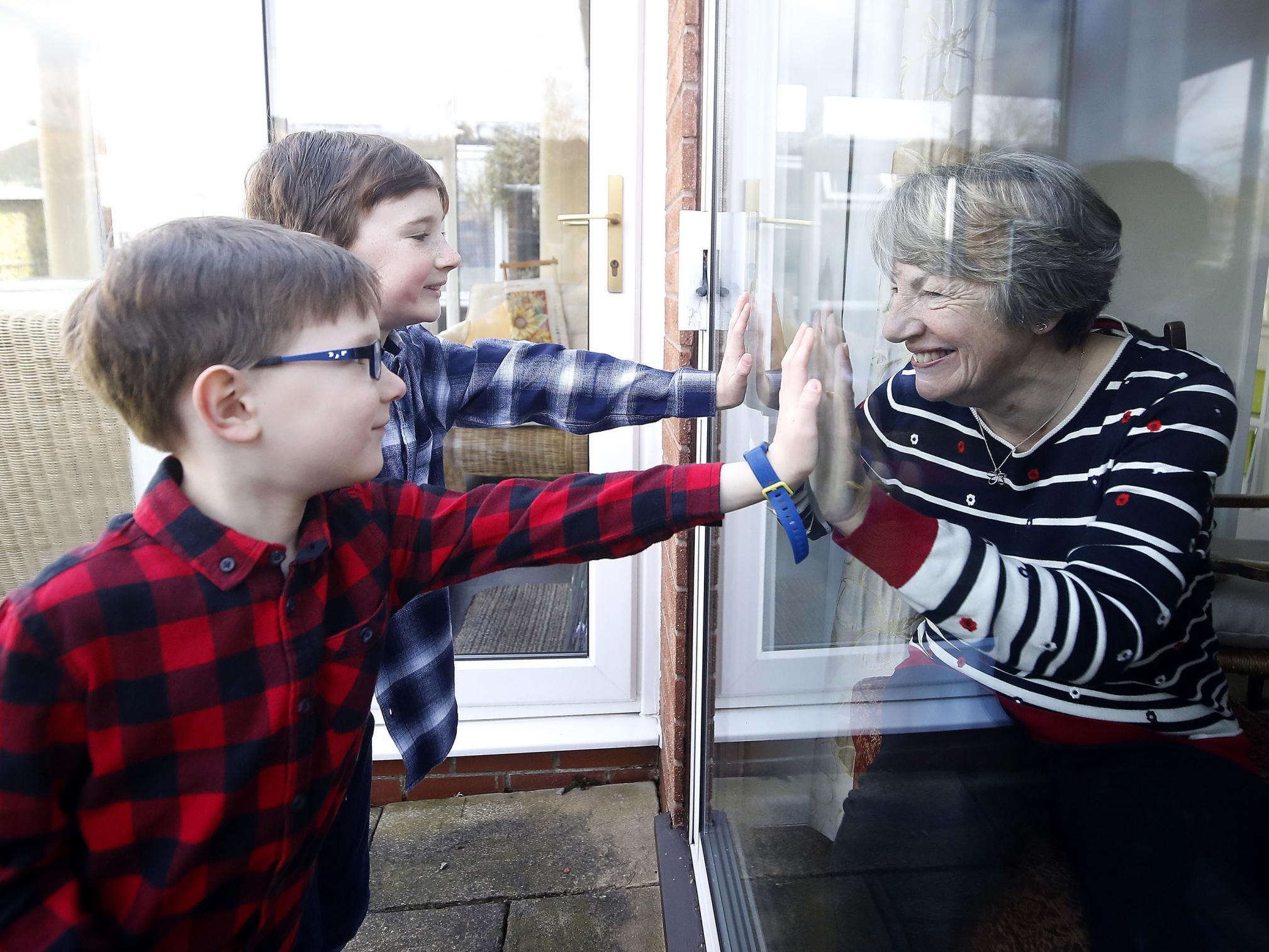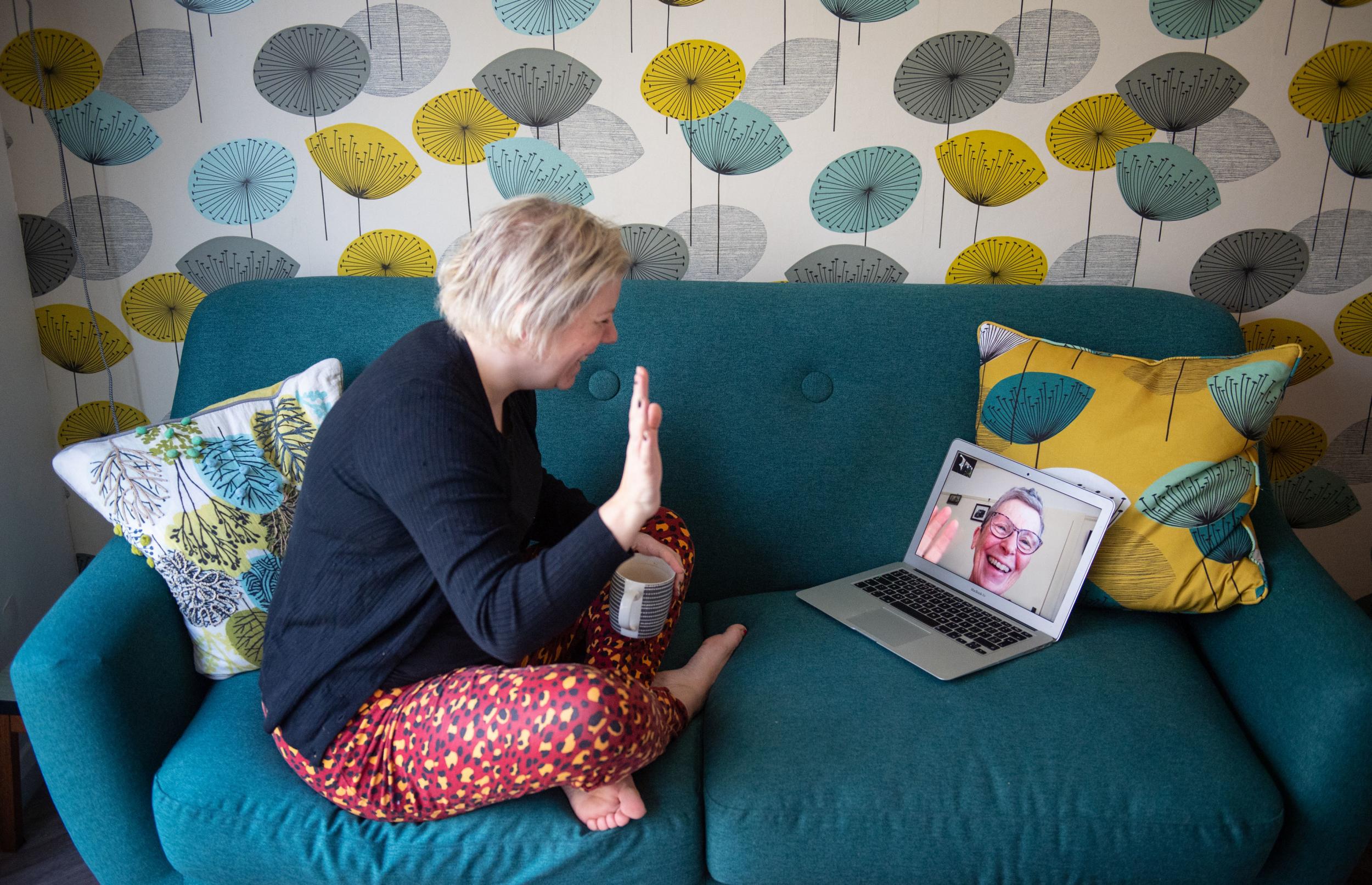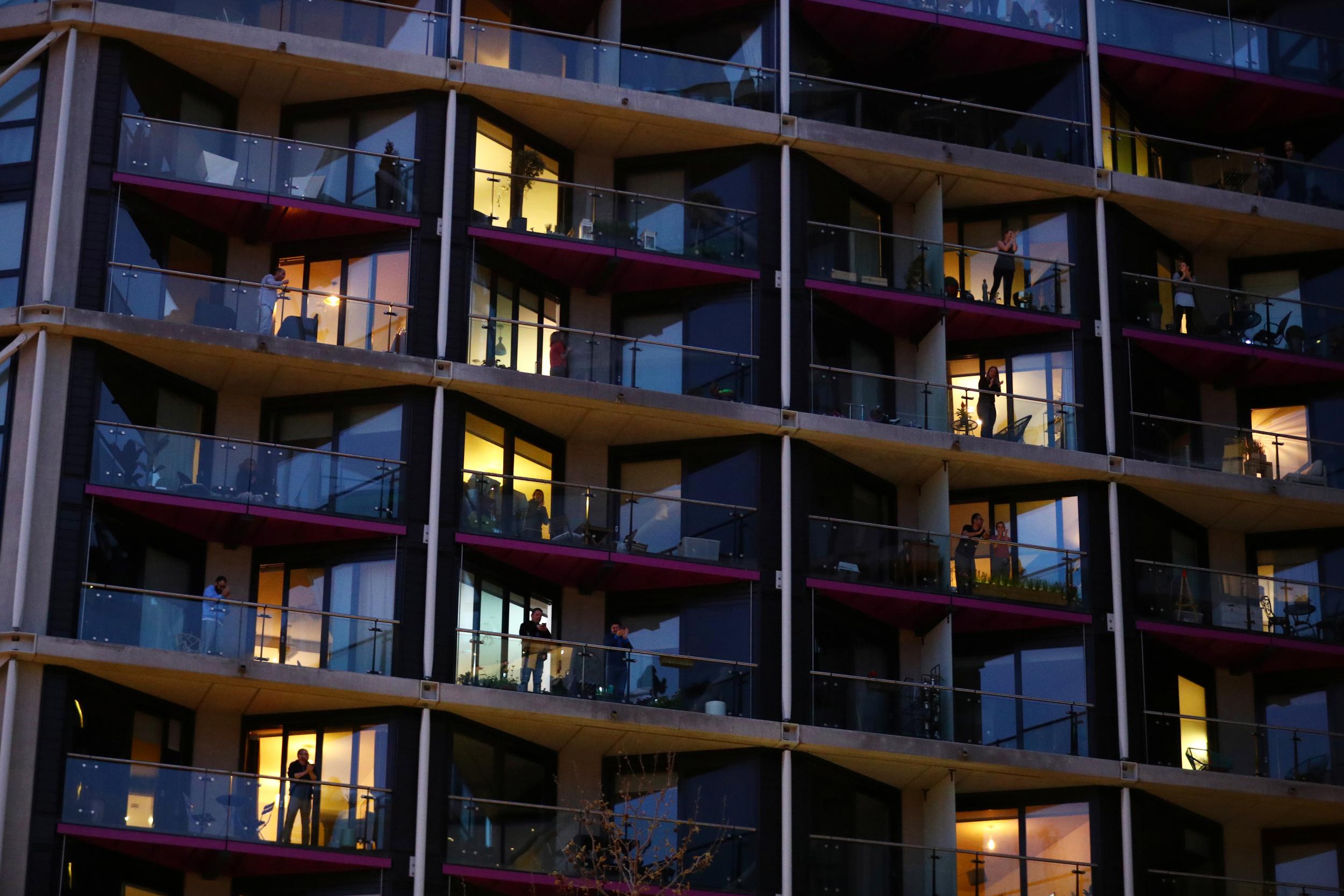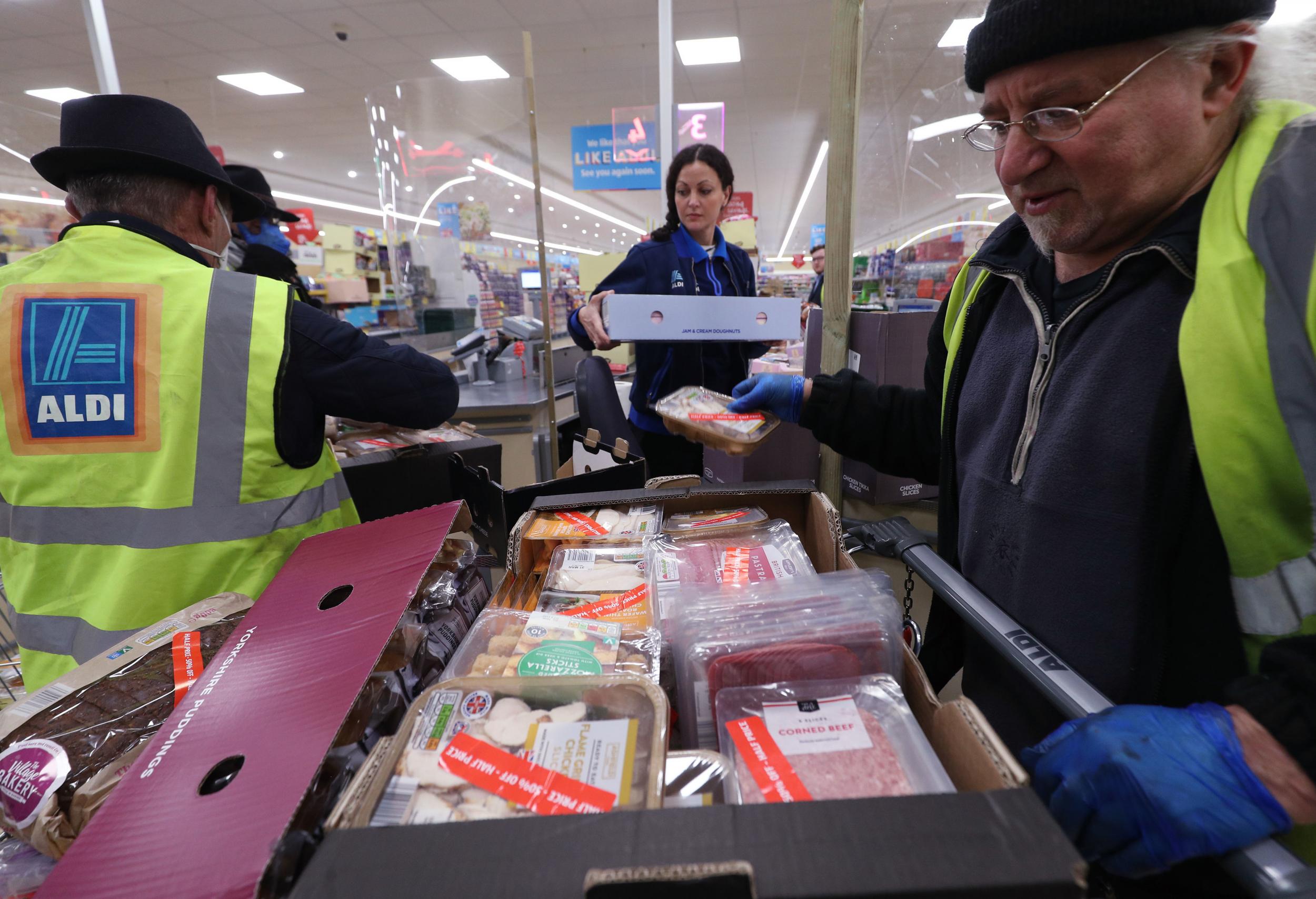Simple acts of kindness are more important than ever
Supportive phone calls, an empathetic ear and expressions of love do not just feel good – they can also bolster the immune system on a molecular level. Sarah Kaplan reports

Your support helps us to tell the story
From reproductive rights to climate change to Big Tech, The Independent is on the ground when the story is developing. Whether it's investigating the financials of Elon Musk's pro-Trump PAC or producing our latest documentary, 'The A Word', which shines a light on the American women fighting for reproductive rights, we know how important it is to parse out the facts from the messaging.
At such a critical moment in US history, we need reporters on the ground. Your donation allows us to keep sending journalists to speak to both sides of the story.
The Independent is trusted by Americans across the entire political spectrum. And unlike many other quality news outlets, we choose not to lock Americans out of our reporting and analysis with paywalls. We believe quality journalism should be available to everyone, paid for by those who can afford it.
Your support makes all the difference.Don’t go to work. Don’t see your friends. Don’t visit your grandmother in the nursing home. Don’t bring food to your sister who works at a hospital. Don’t hold your wife’s hand while she gives birth. Don’t play together. Don’t pray together. Don’t hug.
Of the many cruelties of the coronavirus pandemic, this is one of the hardest to accept: In a time when all we want is to be close to the people we care about, closeness is the one thing we can’t have.
Six feet has never felt farther away.
Psychologists are worried about the long-term effects of our new, socially distant reality. Decades of research has shown that loneliness and isolation are associated with high blood pressure, chronic inflammation, weakened immune systems and a host of other health issues.
But there is also hope in the data. Studies have revealed that human connection – something as simple as getting an offer of help from a stranger or looking at a picture of someone you love – can ease pain and reduce physical symptoms of stress. People who feel supported by their social networks are more likely to live longer. One experiment even found that people with many social ties are less susceptible to the common cold.
For everyone quarantined in solitude, aching and afraid for far-flung family and friends, this science can provide some solace. A supportive phone call, an empathetic ear, an expression of love – these things can bolster the immune system on a molecular level. Whether you are the recipient or the giver, kindness is good for your health.

“There are powerful protective effects that we shouldn’t ignore,” says Julianne Holt-Lunstad, a professor of psychology and neuroscience at Brigham Young University. “And the extent to which we cannot only be open to receiving support from others ... but be a source of support to them, can potentially help us all get through this.”
Without a vaccine or an antiviral that can work against covid-19, the disease caused by the novel coronavirus, social distancing is one of the most powerful tools to combat it. Reducing interactions between infected and healthy people slows the spread of the virus, buying hospitals and public health officials time to treat the influx of sick people.
But a global pandemic is a tough time to be alone.
Apparently our bodies think they don’t need to worry about viruses when we’re not around other people
Humans are a social species, says Naomi Eisenberger, a neuroscientist at the University of California at Los Angeles. Our brains and bodies have evolved to count on the closeness of others. Surrounded by family and friends, we feel safe from predators and secure that we will be cared for if we’re hurt.
But when we are on our own, or even when we just feel friendless, our bodies gear up for danger. Our nervous systems produce norepinephrine, a hormone associated with the “fight or flight” response. Inflammation – the way the immune system heals wounds and fights off bacterial infections – goes into overdrive. (Ironically, our anti-viral response is suppressed when we’re lonely. Apparently our bodies think they don’t need to worry about viruses when we’re not around other people.)
That response may have been adaptive for our distant ancestors, who needed it to avoid death by sabre-toothed cat. But modern humans face more abstract threats, ones we cannot easily fight or flee. Loneliness leaves people in a state of constant, unhealthy unease – their blood pressure elevated, blood sugar levels high. If this state persists for too long, it can contribute to chronic health conditions such as diabetes, atherosclerosis and heart disease.

In a survey of 70 studies involving more than 1 million people from around the world, Holt-Lunstad found that people who lived alone were 32 per cent more likely to die over a given period. People who reported feeling lonely were 26 per cent more likely to die, and people who experienced social isolation – defined as few or infrequent contacts with other people – were 29 per cent more likely to die. Even when the researchers adjusted for age, outside health conditions, nationality, gender, smoking habits and a host of other traits, this trend persisted.
In a separate analysis of 148 studies involving more than 300,000 people, Holt-Lunstad found that people who were more socially connected were 50 per cent less likely to die over a given period. The correlation was even stronger than the one revealed by the isolation studies.
Alienation may hurt us, but kinship is a still more powerful balm.
One of the most important things kindness can do is ease our reaction to stress. In one experiment at Bert N Uchino’s lab at the University of Utah, dozens of undergraduate students were brought into an empty room, seated in a chair and told they had been accused of shoplifting. They had three minutes to formulate their responses.
Simply thinking about a supportive person can activate a part of the brain called the ventromedial prefrontal cortex, which is associated with overcoming fear
Their hearts began to race. Their blood pressure spiked. Stress hormones flooded their systems.
But in some instances, before leaving the room, the experimenter would tell the student: “If you need me for any reason or if you have any questions, don’t hesitate to ask me. I appreciate your participation in this experiment, and I’d like to be helpful to you should you need any help.”
In those cases, the students’ hearts didn’t beat quite so fast. Their stress responses were much less extreme.
“This data suggest that simply having potential access to support is sufficient to foster adaptation to stress,” Uchino and his colleagues wrote.

Other research shows that looking at a picture of a loved one can make pain feel less intense. When people with strong support networks are asked to do complex mental math, their blood pressure stays lower and there is less of a stress-related chemical in their saliva. Simply thinking about a supportive person can activate a part of the brain called the ventromedial prefrontal cortex, which is associated with overcoming fear.
Scientists call this the “buffering effect”. The sense of security that people get from their friends and family allows them to meet stressful situations with a “calmer physiology”, Eisenberger says.
This, in turn, can lead to a stronger immune system. Many of the hormones involved in stress – cortisol, which stimulates the production of sugar; epinephrine and norepinephrine, which increase heart rate and elevate blood pressure – hinder immune cells’ ability to function.
This may be a consequence of how stress evolved, according to Uchino. “The idea is that anxiety and stress co-opted the immune system to deal with threats that are external,” he says.
It’s hard to prove an evolutionary theory, but the implications are undeniable: “Anything that psychologically affects us also affects our immune system,” Uchino says.

“For a long time, immunologists and social scientists didn’t really talk to each other,” he adds, “And now we have to.”
All of the researchers expressed concern about the effect of a period of prolonged isolation on people around the globe. What will the mental health impact be on people with few social ties? How will people in unhappy or abusive relationships fare when forced to stay at home? Will avoiding people and mistrusting strangers become a habit that persists once the pandemic is over, affecting our interactions for years to come?
“We’re living a very different and worrisome time,” Uchino says. “Not just at the biomedical level but at the psychosocial level as well.”
This makes it all the more important for people to maintain their ties to one another, Holt-Lunstad says. Call and text and talk over web video. Wave to neighbours. Sing from the balcony like an Italian tenor.
And do something kind for someone else, researchers say. Studies have shown that “prosocial behaviour”, such as volunteering, curbs physical symptoms of stress. Remember that the coronavirus quarantine is a collective act of altruism – a sacrifice for the health of strangers as well as loved ones.
We shouldn’t even think of what we’re doing as social distancing, Holt-Lunstad says. She prefers the term “physical distancing”. It’s a reminder that the virus may have forced us apart, she says, but it doesn’t have to make us alone.
© The Washington Post
Join our commenting forum
Join thought-provoking conversations, follow other Independent readers and see their replies
Comments